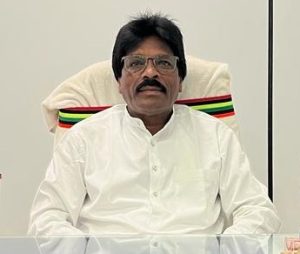DeendayalAntyodaya Yojana (DAY) National Urban Livelihoods Mission (DAY-NULM) was launched by the Ministry of Housing and Urban Poverty Alleviation (Mo HUPA), Government of India in 23rd September 2013 by replacing the existing Swarna Jayanti ShahariRozgar Yojana (SJSRY). It is a flagship program of the Ministry of Housing and Urban Poverty Alleviation (M/o HUPA) is formulated to reduce poverty and vulnerability of the urban poor households by enabling them with access to gainful self-employment and skilled wage employment opportunities, resulting in an appreciable improvement in their livelihoods on a sustainable basis, and also through building strong grassroots level institutions of the poor.

The lynchpin of the Mission is creating trained, skilled human resources by emphasizing Skill Training and Placement. Consistent with global poverty-alleviation norms that stress an aggregative approach to the alleviation, the Mission also stresses social mobilization of the poor in urban areas and creation of agglomerations that unitedly work for developing micro- and small-enterprises. These agglomerations, called Self Help Groups (SHG), would also be a vital tool for empowering the poor in urban areas and for demand-based services that would cater to local needs. Also built into the scheme is infrastructure and services development that would reduce vulnerability of the poor, as amplified in the Shelter for Urban Homeless and City Livelihood Centre strategy.
For implementing the DAY-NULM, the state has established the two-tier interdependent structure, at state and city levels. 114 ULBs in the state are covered by the Mission, of which 5 are Corporations, 48 Municipalities and 61 Notified Area Councils. The State Mission Management Unit (SMMU) has six experts, one each for six thematic areas specified by the DAY-NULM Guidelines.
1. Social Mobilisation and Institution Development (SM&ID) :
DeendayalAntyodaya Yojana-National Urban Livelihoods Mission (DAY-NULM) shall rest on the foundation that the mobilisation of urban poor households to form their own institutions is an important investment for an effective and sustainable poverty reduction programme. These institutions of the poor would partner with local self-governments, public service providers, banks, private sector and other mainstream institutions to facilitate delivery of social and economic services to the poor.
Component Building Community Institutions – Self Help Groups and Their Federations
DAY-NULM envisages mobilisation of urban poor households into a three tiered structure with Self-Help Groups (SHGs) at the grass-root level, Area Level Federations (ALFs) at the slum / ward level and City-Level Federations (CLFs) at the city-level:
2. Capacity Building & Training (CBT) :
The key objectives of the Capacity Building and Training (CB&T) component are:
- To transform the role of M/oHUA and State Agencies in charge of urban poverty alleviation into providers of high-quality technical assistance in the field of livelihood promotion and urban poverty alleviation;
- To build strong institutional structures at the National, State, and City levels for efficient implementation of the DAY-NULM and;
- To build capacity of the urban poor, their institutions and the machinery involved in the implementation of DAY-NULM.
3. Employment Through Skill Trainings & Placement (EST&P) :
The Employment through Skill Training & Placement (EST&P) Component under NULM isdesigned to provide skills to the unskilled urban poor as well as to upgrade their existing skills. The programme will provide for skill training of the urban poor to enable them setting upself-employment ventures and for salaried jobs in the private sector. The EST&P Programmeintends to fill the gap between the demand and availability of local skills by providing skilltraining programmes as required by themarket.
Objectives
The broader objective of the Employment through Skills Training & Placement (EST&P) Programme is –
- To provide an asset to the urban poor in the form of skills for sustainable livelihood.
- To increase the income of urban poor through structured, market-oriented certifiedcourses that can provide salaried employment and / or self-employment opportunitieswhich will eventually lead to better living standards and alleviation of urban povertyon a sustainable basis
- Ensure inclusive growth with increased contribution of skilled urban poor to theNational Economy.
Skill development, under EST&P is defined as any domain-specific demand-led skill trainingactivity leading to employment or any outcome oriented activity that enables a participant toacquire a Skill, duly assessed and certified by an NSQF-approved independent third-partyagency, which enables him/her to get wage / self-employment leading to increased earnings, andor improved working conditions, such as getting formal certification for hitherto informal skillsand/or moving from informal to formal sector jobs or pursue higher education/training.
Under the Skill development programmes, three types of training can be provided:
- Training of fresh entrants to the job market
- Reskilling or skill up-gradation of persons already engaged in an occupation
- Formal recognition and certification of persons who have acquired skills throughinformal, non-formal or experiential
training in any vocational trade or craft, afterimparting bridge course, if necessary.
4. Self-Employment Programme
This component will focus on financial assistance to individuals/groups of urban poor for setting up gainful self-employment ventures/ micro-enterprises, suited to their skills, training, aptitude and local conditions. The component will also support Self Help Groups (SHGs) of urban poor to access easy credit from bank and avail interest subsidy on SHG loans. The component will further focus on technology, marketing and other support services to the individuals, group entrepreneurs, SHG members and Urban street vendors/ hawkers engaged in micro enterprises for their livelihoods. The component will also facilitate credit cards for working capital requirement of the entrepreneurs.
5. Support to Urban Street Vendors
In this context, the National Urban Livelihoods Mission (NULM) seeks to address the concerns of urban street vendors by facilitating access to suitable spaces for vending, institutional credit, improved skills and social security linkages. The Support to Urban Street Vendors Component of NULM sets out the strategy and operational guidelines regarding this component.
Objectives
The objective of the component is to address the vulnerabilities of the urban street vendors through a multi-pronged approach. This includes:
- Survey of street vendors and issue of Identity Cards
- Development of city street vending plans
- Infrastructure development of vending zones in the city
- Training and Skill Development
- Financial Inclusion
- Access to credit
- Linkages to social security schemes
6. Shelter for Urban Homeless (SUH) under DAY-NULM:
The National Urban Housing & Habitat Policy (NUHHP), 2007 aims at promoting sustainable development of habitat in the country with a view to ensuring equitable supply of land, shelter and services at affordable prices to all sections of the society. However, the most vulnerable of these are the urban homeless. The Urban homeless persons contribute to the economy of the cities and thus the nation as cheap labour in the informal sector; yet they live with no shelter or social security protection. The urban homeless survive with many challenges like no access to elementary public services such as health, education, food, water and sanitation. National Urban Livelihoods Mission (NULM) aims at providing permanent shelter equipped with essential services to the urban homeless in a phased manner under the Scheme of Shelter for Urban Homeless (SUH).
<h5.Objectives:
The objectives of the Shelter for Urban Homeless (SUH) component of NULM scheme are to:
- Ensure availability and access of the urban homeless population to permanent shelters including the basic infrastructure facilities like water supply, sanitation, safety and security;
- Cater to the needs of especially vulnerable segments of the urban homeless like the dependent children, aged, disabled, mentally ill and recovering gravely ill, by creating special sections within homeless shelters and provisioning special service linkages for them.
- Provide access to various entitlements, viz. social security pensions, PDS, ICDS, identity, financial inclusion, education, affordable housing etc. for homeless populations.
- Formulate structures and framework of engagement for development, management and monitoring of shelters and ensuring basic services to homeless persons, by state and civil society organisations including homeless collectives.
7. Innovative & Special Projects (I&SP)
In keeping with the mission’s need to learn from innovative initiatives the DeendayalAntyodaya Yojana-National Urban Livelihoods Mission (DAY-NULM) will promote novel approaches in the form of innovative and special projects. The objective of projects under this component will be to implement a time-bound programme to demonstrate an approach that is likely to have wide implications for sustaining urban poverty alleviation efforts.
A project taken up under this component may include pioneering approaches, innovations to strategies under DAY-NULM, or catalysing efforts in geographical areas where these have not been undertaken before. These projects may also include activities not possible to address through the normal course of DAY-NULM implementation. Further, special projects to address livelihood issues ofmost vulnerable sections like physically-challenged, rag pickers, domestic workers, rickshaw pullers, sanitation workers and other such vulnerable groups may also be taken up.
Innovative / special projects may be undertaken on a partnership mode involving CBOs, NGOs, semi-government Organisations, private sector, industry associations, government departments/agencies, urban local bodies, national/state/city resource centres or international organisations.


